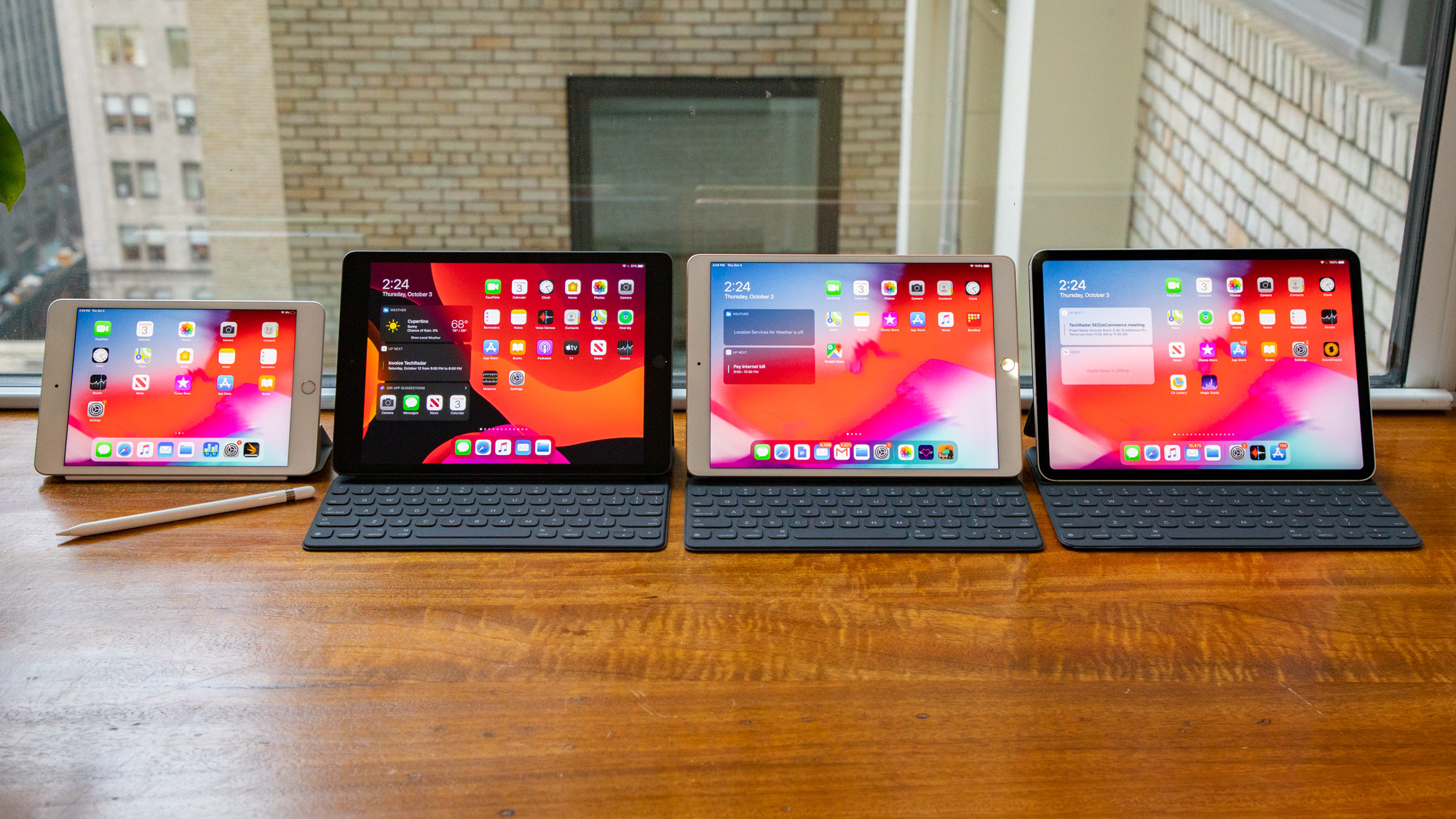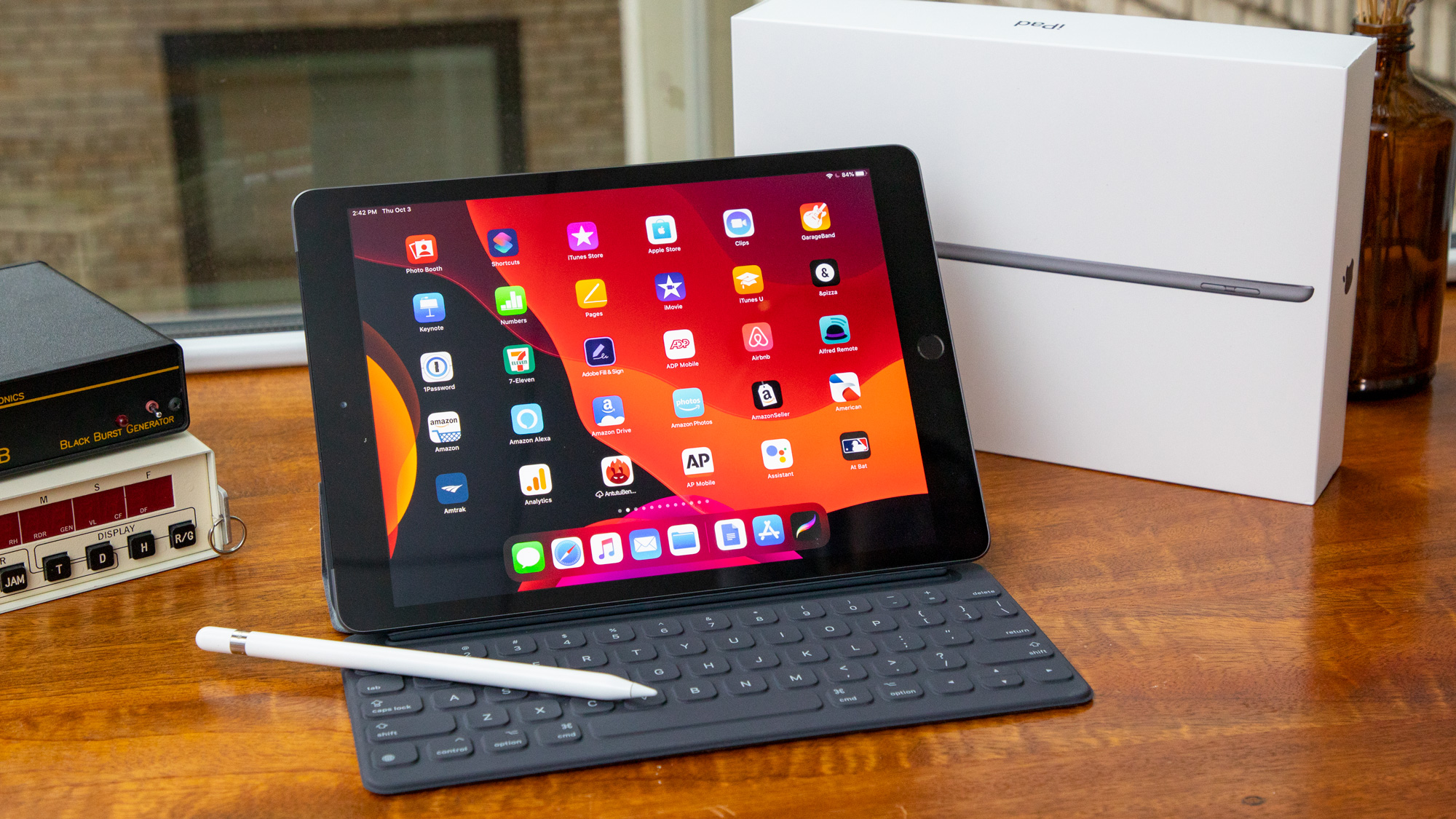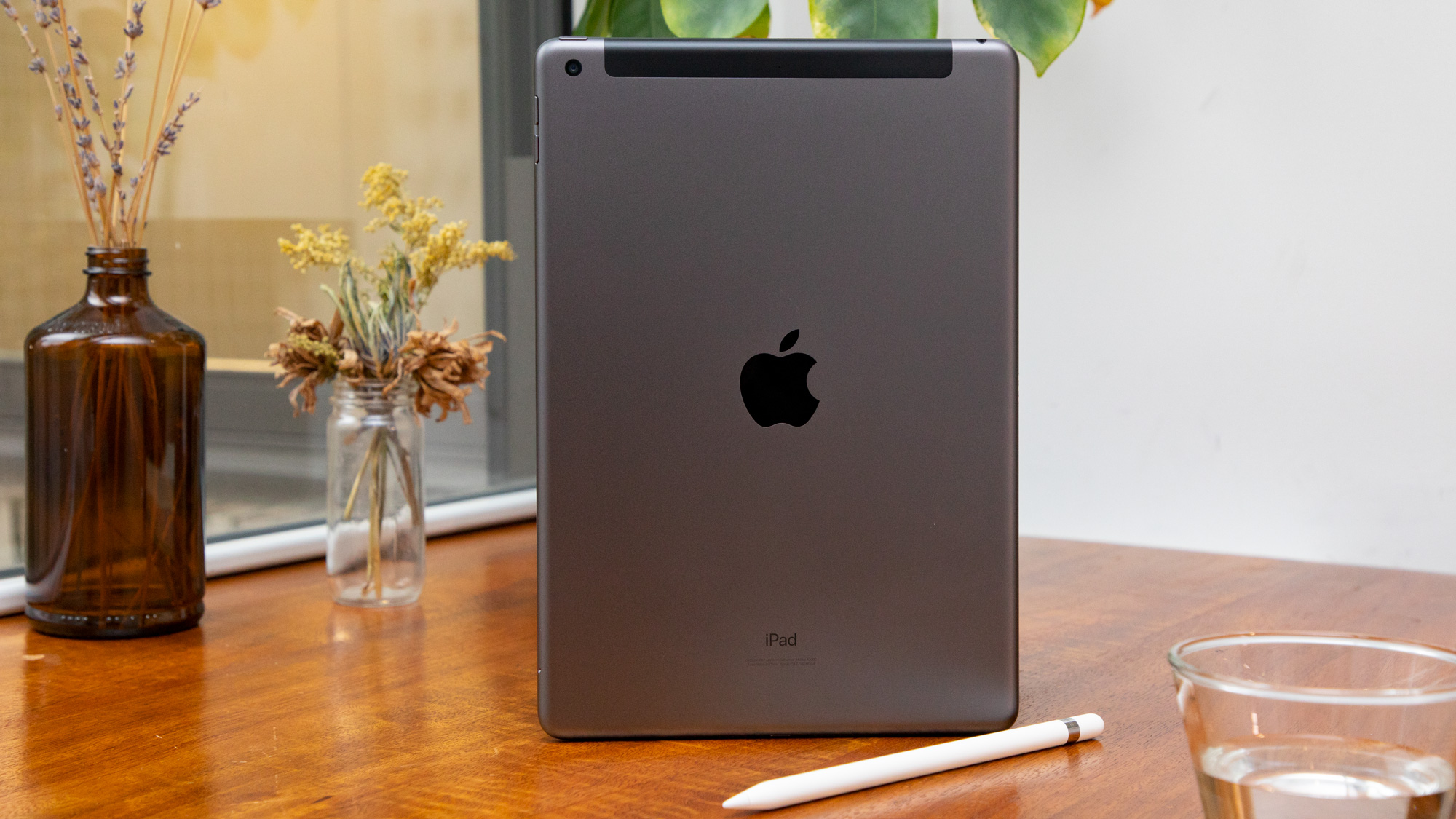Going by past years' performances, Apple will likely debut its new entry-level iPad alongside the iPhone 13 at an event in September. Rumors point to that event taking place on the 14th of the month, so that's our current best guess as to when we could see this device.
This isn't the first new iPad of the year, with the Spring Apple Event in April 20 bringing us the new iPad Pro, but this article is about the opposite of that pricey device. The entry-level iPad is the low-cost mid-size slate that most people end up picking up when they're looking for a new iPad.
This is the follow-up to the iPad 10.2 (2020), but we don't know how big it'll be, which is why we can't call it the new iPad 10.2 (2021) just yet. We're also expecting to hear about an iPad Mini 6 sometime soon, and possibly an iPad Air 5, but that's less likely.
And while the new iPad (2021) is likely a way off, we have an idea of what to expect from it, as the screen size, the processing power, the price and more details have leaked already - as time goes on, we'll likely hear even more.
Below, we've included all the details we've heard about the new iPad, to paint the current picture of the slate.
Before even more information comes out, we've also written a wish-list of all the changes we want the next iPad to make on its iPad 10.2 (2020) predecessor to make it a worthwhile upgrade.
We've heard the entry-level iPad in 2021 could be thinner than its predecessor, and designed with students in mind.
Cut to the chase
- What is it? Apple's next entry-level iPad
- When is it out? Possibly September 14
- How much will it cost? Apparently only $299 (roughly £220, AU$400)
New iPad (2021) release date and price
At the moment, September or October 2021 is our best bet at the new iPad's release date, likely alongside the iPhone 13 and Apple Watch 7. Reports suggest there will be a launch event on September 14 which seems a likely bet for the iPad launch, though that's just a rumor for now, and the release date will likely be in the following weeks anyway.
An iPad price leak suggests it could be the cheapest iPad we've seen so far, suggesting the slate could cost just $299 in the US, which converts to about £220, or AU$400.
That's only a touch cheaper than previous lower-end iPads - the iPad 10.2 (2020) cost $329 / £329 / AU$499, so only a tiny bit more - but some may appreciate the lower price.
Elsewhere we've heard that the price will be "consistent" with previous models, which the leak above more or less would be.
- Browse the latest iPad deals available now

New iPad (2021) leaks and rumors
The first iPad (2021) rumor we heard suggested it'd come with the A13 Bionic chipset which we saw in the iPhone 11 phones, alongside 4GB RAM. The leak also suggested the tablet will have a 10.5-inch screen, 0.3 inches bigger than its predecessor.
It also said that it'll have 64GB storage in its most affordable variant, which would be a big step up from the 32GB currently available on the standard iPad.
Finally, that leak detailed the design, but it mostly sounds like the previous iPads with a Touch ID home button and big bezels.
A second leak repeated all this information, adding the pricing details we covered above. It also suggested the iPad's body will be thinner and lighter than that of the tablet it's succeeding.
The rumors of it being thin are coming thick and fast, as another rumor suggested as much, adding that the tablet will be designed with students in mind.
What we want to see
Here's a list of features we want to see in the next entry-level iPad (2021), including changes from previous models, extras from other iPad lines, and brand-new features for this model.
1. High resolution selfie camera
If you go to take a selfie with the iPad 10.2 (2020), or jump on a video call, you might find yourself looking a little grainy. That's because the tablet only has a 1.2MP front-facing camera, which is pretty low resolution.
Now a tablet doesn't need a super-high-res selfie snapper - you're probably going to take better-looking snaps with your phone, and if you want a professional portrait, a tablet isn't how you're going to do it.
Even still, 1.2MP is very low, and we feel Apple could bump that up to 8MP or so for improved selfies and video calling.

2. A big design change
The 'main' iPad line has not fundamentally changed its appearance ever since the original debuted, over 10 years ago. The iPad 10.2 in 2020, the eight-gen model, looks positively outdated, even compared to affordable Android tablets, and the existence of more futuristic-looking iPad Air and iPad Pro models has done little to offset this.
The entry-level iPad line is well due a design upgrade, much like what the iPad Air 4 had, though we're not asking for an exact design replication. We just want a new entry-level iPad that feels modern in the hand, and is easily discernible from its myriad predecessors.
3. More storage space
Why do most smartphones have at least 128GB storage, yet Apple still sells tablets with only 32GB? In the modern age where people download games, movies, TV shows, music, work documents and more, that's just not enough.
Sure, you could opt for a higher-storage option, but the 2020 iPad only came in 32GB or 128GB options - a tiny amount, or a fair amount, but that might not be enough for some people who want to download loads of content. iPad Pro models come with up to 1TB or 1,000GB, after all.
4. Faster charging

Most entry-level iPads come with 10W charging, which is about as fast as a melting glacier. Even though the 2020 model came with 20W charging, that's still pretty slow, and it can lead to a slate taking a while to charge.
Apple products have never been good with battery life or fast charging, but we'd like the company to step up its game just a little bit. This would be helped with our next point...
5. A USB-C port
...a USB-C port is something we're scratching our heads over why it's not used in all iPads yet. Though iPad Pro models have them, and the newest iPad Air does too, Apple's entry-level and Mini series of iPads have so far stuck with the inferior Lightning port.
USB-C cables are much faster for charging than lightning, and have quicker data transfer too. USB-C is much more common for cables, so if you had an iPad with it you could use it with all your cables and gadgets that also use the standard, and the physical jack itself is just way more durable than a flimsy Lightning connector.
Apple likely uses Lightning Ports still as that's its proprietary tech, so it makes more money off selling you its own chargers and accessories instead of you buying cheaper third-party ones. But given how slow and flimsy they are, Apple can't keep dragging its boots with this antiquated technology forever.
from TechRadar - All the latest technology news https://ift.tt/3mxpovn
EmoticonEmoticon